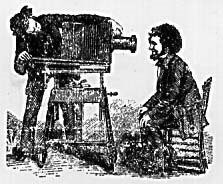In the "General Introduction", Munns and Rajan provide an overview of the origins of cultural studies. They argue that cultural studies has its roots in cultural critique. According to Munns and Rajan, "cultural critique is more than an interdisciplinary solution, it provides a spectrum of approaches to questions that are raised in today's global, multi-classed, multi-racial, and multi-cultural societies" (2). In other words, cultural critique is a way of understanding the world with its different power relations and cultures.
An important term to consider is "history", which, according to New Keywords, "principally signifies a retelling of past events which is professedly true" (Schwarz, 156). Munns and Rajan do not intend their Reader to be a history of ideas, but the historification of cultural studies is still key to their work. Instead, they consider their Reader to be "an interpretation of how certain ways of thinking about culture have come into being in relation to cultural phenomena" (7).
Munns and Rajan often refer to Matthew Arnold and Karl Marx, because of their significant influence on the practice and purpose of cultural critique (see http://en.wikipedia.org/wiki/Matthew_Arnold and http://www.cultureguide.com.au/marx/ for more information on Arnold and Marx). Both Arnold and Marx saw cultural critique, and thus cultural studies, as a way of changing society for the better. Munns and Rajan agree, saying that "cultural studies is an inherently powerful tool with a radical potential for intervening in the education and socialization, i.e., acculturation, of future generations of students" (6). As with knowledge in general, cultural studies in particular is a powerful force in the political and economic structures of our world.
announcements
This blog was created by and for students in an Introduction to Cultural Studies class at the University of Washington. Through an investigation of urban experience and representation--in theory, in graphic novels and in our own "readings" of Seattle's University District--we considered the formation and history of cultural studies as an (anti)discipline, with a special emphasis on the questions, "What does cultural studies do, and how do you do cultural studies?"
If you'd like to know more about the class, the blog or our U-District artifact project, please contact Gabrielle Dean: gnodean@u.washington.edu.
If you'd like to know more about the class, the blog or our U-District artifact project, please contact Gabrielle Dean: gnodean@u.washington.edu.
Subscribe to:
Post Comments (Atom)
blog archive
-
▼
2008
(92)
-
▼
April
(35)
- Identity in City of Glass
- History of Origins: Race Studies
- History of Origins: Gender Studies
- History of Origins: Gender Studies
- History of Origins: America
- History of Origins: Race Studies
- History of Origins: Gender Studies
- History of Origins: Race Studies
- History of Origins: Race Studies
- History of Origins: Media and Science
- History of Origins: Media and Science
- History of Origins: Gender Studies
- History of Origins: Media and Science
- History of Origins: European Theory
- History of Origins: European Theory
- History of Origins: European Theory
- History of Origins: European Theory
- History of Origins: European Theory
- History of Origins: America
- History of Origins: European Theory
- History of Origins: America
- History of Orgins: European Theory
- History of Origins: European Theory
- History of Origins: Great Britain
- History of Origins: Great Britain
- Cultural Studies in Britain
- Cultural Studies in Britain
- History of Origins: General
- History of Origins: General
- History of Origins: General
- History of Origins: General
- "Orientalism"
- Are You an Author?
- "Paris, Capital of the 19th Century"
- READING: A WEB MODEL
-
▼
April
(35)

No comments:
Post a Comment